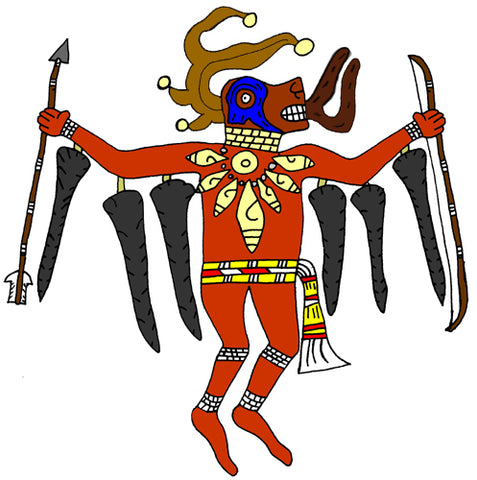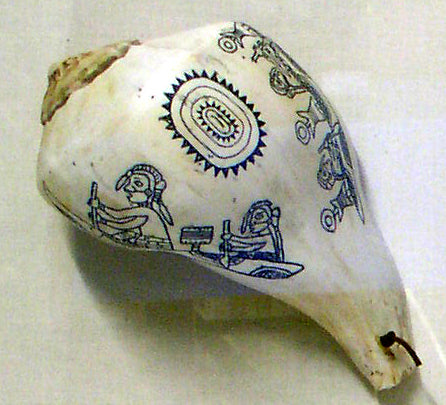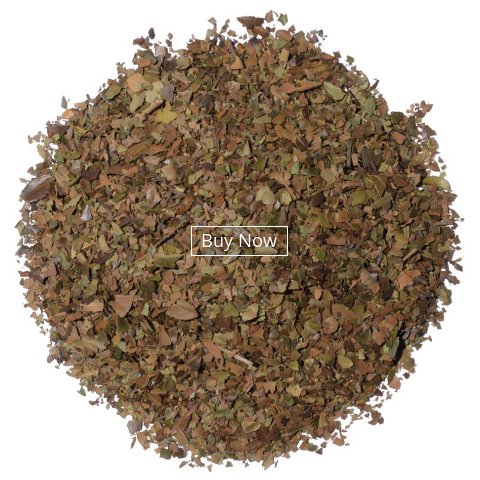Copy of About Yaupon
A LITTLE HISTORY OF YAUPON

|
|
This image was on an engraved shell cup for drinking yaupon found at Spiro Mound (source) |
The drinking of yaupon goes back into the time of the ancients, before the cataloging of history and the arrival of Europeans in the New World. Yaupon is an inconspicuous little evergreen, a relative of yerba mate and guayusa, that grows along the coastal regions of the Southern United States and the Atlantic coast. It takes on a variety of forms, from small bush to little tree, and its name actually comes from the Catawban language, meaning “little tree.”
Many Native American tribes made use of this plant, revering its energizing, healing and magical qualities. The Cherokees called it "the beloved tree." It was used as anything from a daily social drink to an ingredient in highly ceremonial beverages collectively called Black Drink. It was drunk before going into battle, entering into new business and making important decisions.

|
|
Engraved whelk shell cup (replica) from Wickliffe, KY (source) |
Ornate and beautifully decorated shells used to drink yaupon have been found at archaeological sites far away from yaupon’s natural habitat. This isn’t surprising as yaupon was traded among the Native Americans of the Midwest, East, Southeast, and Southwest United States.
When Europeans arrived in the New World, the Native Americans shared their knowledge of this wonderful plant, and yaupon's use among European settlers became widespread: "[T]here is no Spaniard or Indian who does not drink it every day in the morning and evening...it is more of a vice than chocolate in New Spain [...] any day that a Spaniard does not drink it, he feels that he is going to die," wrote Father Francisco Ximenez in a 1615 text quoting Francisco Hernández de Toledo, a court physician ordered by King Philip II of Spain to study medicinal plants of the New World. Yaupon was exported to Europe under names such as Chocolate del Indio in Spain, South Sea Tea in England, and Apalachine in France, and its enjoyment lasted well into colonial times. As to why the drinking of yaupon didn't continue into the modern day, nobody is quite certain. One theory points to a conspiracy over its scientific name (Ilex vomitoria) given by William Aiton, the royal botanist to King George III. Some believe that Aiton gave yaupon this name because he was in the secret employ of the world’s first multinational corporation, the East India Company, which wanted to preserve its stranglehold over the world’s tea trade. Though yaupon contains no emetic properties, it was used during Native American purification ceremonies.
 |
 |
 |
Light Roast Yaupon Tea |
Dark Roast Yaupon Tea |
Yaupon Tea Concentrate |
| A tantalizing range of complex flavors. Brewed lightly it is smooth and bright with a hint of caramel sweetness. Stronger or longer steepings yield a more bold, nutty and grassy flavor with a silky texture. | Depending on brew strength, the flavor is anywhere from light, caramelly and buttery to intensely rich, complex, nutty and smoky with a velvety texture. Dark roast brewed strong makes a great coffee alternative. | Our yaupon tea concentrates make a half gallon of lightly sweetened iced (or hot) tea. Just add water and stir! Make a pitcher or a single serving at a time. Comes in Basil Lemon and Mint Lemon. Made with all real ingredients and no preservatives! |
